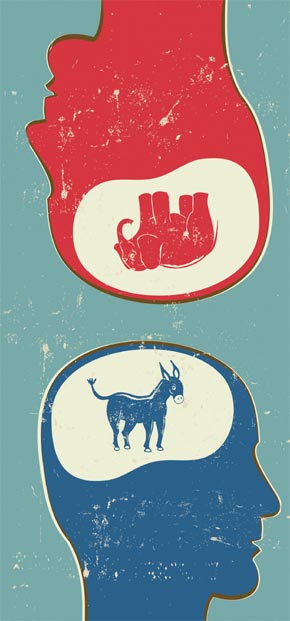 By the time this issue of ALIVE is published the presidential election will be history and we’ll either have a new president or we’ll be looking forward to another four years of an Obama Administration. Regardless of your preference or what outcome you had hoped for, it is what it is.
By the time this issue of ALIVE is published the presidential election will be history and we’ll either have a new president or we’ll be looking forward to another four years of an Obama Administration. Regardless of your preference or what outcome you had hoped for, it is what it is.
Barring another “hanging chad” fiasco as we experienced in 2000, as of Wednesday morning, November 7th, roughly fifty percent of Americans are feeling disappointed.
While the ideological divide in politics today is often spoken of as a severe, sobering anomaly, when I think back to elections as far back as the Johnson – Goldwater race, I really don’t think things are all that much different. In fact, our history has always reflected major differences, with supporters of each side nearly evenly split.
It has always been the case that if you happen to be on the “winning” side of the coin you’re relieved and feeling great. If you’re on the other side, you’re thinking, now what? Whichever side, winner or loser, in each case the percentages are just about 50-50.
To answer the “now what” question we often hear, “we need to compromise.” We know political gridlock is at hand when we hear the excuse, “What is different today is ‘their’ extreme position and an unwillingness to compromise.” (The ‘their’ being whatever side the speaker happens to disagree with).
I would argue that, in large measure, this notion of compromise is nonsense. At best, politicians’ promotion of compromise is simply a lazy approach to problem solving; at its worst, it is a calculated devise suggested by politicians in an attempt to manipulate their followers, as in, “I cannot get anything done because they (the other side) will not agree to compromise.”
Regardless of who won the election, our president must lead without pitting one group against another — be it race, income bracket or faith. Going forward, the many problems our country faces can best be solved if work together at finding solutions. And, this does not mean we need to “compromise” either. What we really need are informed yet open-minded citizens and leaders who are willing to think, form logical arguments, and then do their best to explain and argue their point of view to convince others to their way of thinking.

Leave a Reply